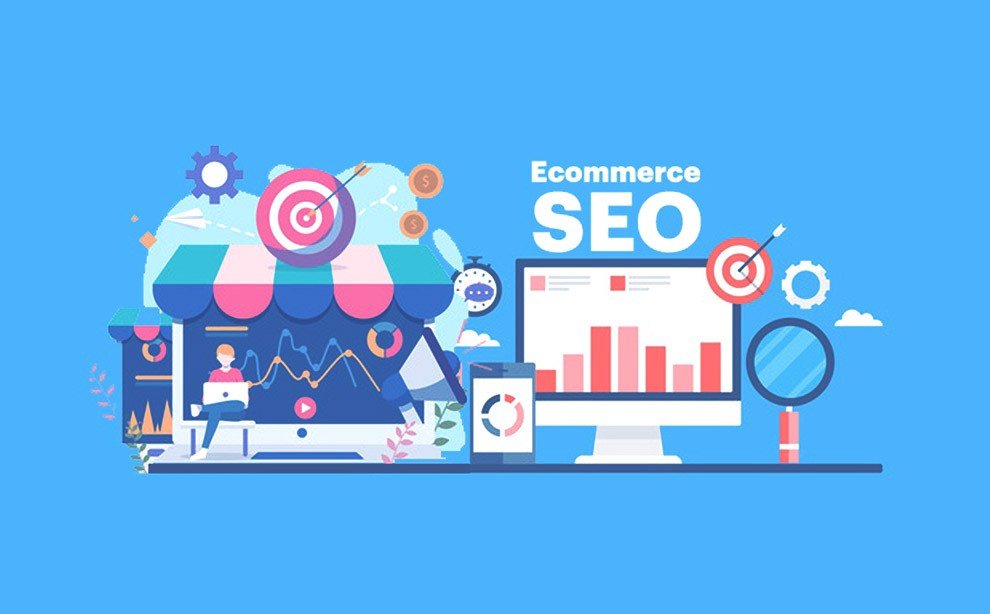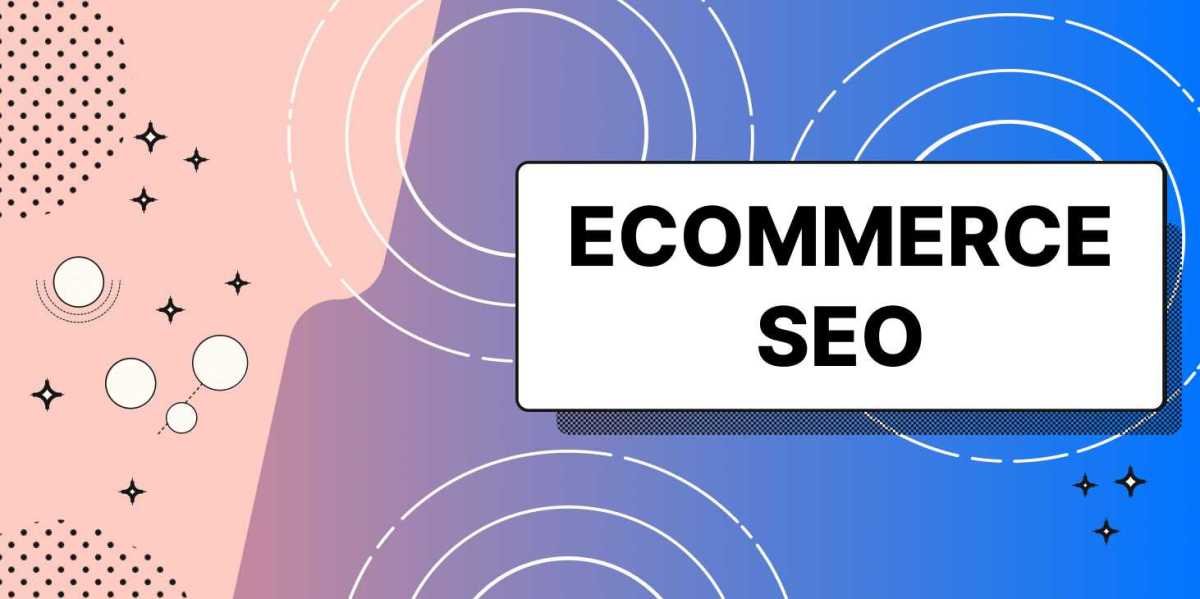Introduction

In the highly competitive world of online shopping, the success of your online store depends upon its ability to be found. SEO for E-commerce Marketing is the pivotal element that can take your store’s online presence to new heights using various proven strategies. Let’s look at the intricacies behind these strategies and discover the way each one helps to improve your online presence as well as the realisation of tangible results.
1. Comprehensive Keyword Research and Implementation:
Conducting an extensive keyword research is like creating the basis of a sound SEO strategy. It is about identifying the exact keywords and phrases the people you want to reach are using in their searches for similar products to yours. The use of these keywords across your site from meta tags to descriptions of products and meta tags, provides a clear message to search engines regarding the relevancy of your website’s web pages to queries from users.
2. Optimize Product Descriptions for Maximum Impact:
Descriptions of products go beyond simple descriptions of features. They provide a vital link that connects your item to a potential buyer. Making compelling, relevant descriptions not only helps you reach your intended audience, but also aids in search engine optimization. The use of relevant keywords seamlessly and naturally way enhances the user experience as well as recognition by search engines.
3. Image Optimization for Visual Appeal and SEO:
In the visual-driven world of online shopping, optimizing the quality of images is more than an issue of aesthetics. The use of descriptive filenames and alt texts will not only increase accessibility for customers, but they additionally give search engines information about the text to help them understand and index the contents. This optimization doubles the aesthetic impact of your products as well as your SEO position.
4. Mobile Optimization for Enhanced User Experience:
The growing number of smartphones highlights the importance of a mobile-friendly website. Google favors mobile-friendly websites on its search results, acknowledging the importance of users who use mobile devices. Mobile optimization does not just ensure an effortless user experience, but is also in line with the preferences of search engines which positively impact your site’s rank.
5. Strategic Link Building to Boost Authority:
Establishing a strong network of quality inbound links remains an essential foundation of effective SEO for E-commerce. Participating in influencer partnerships and collaborating with niche-relevant bloggers and actively seeking guest-posting possibilities all help in the establishing the credibility of your website. High-quality backlinks do not just drive direct traffic, but they can also let search engines know that your website is an authentic and reliable source in your industry.

6. User-friendly URL Structures:
The design of your website is crucial to both the user experience and crawlers’ capacity to understand and navigate the content. Clear, concise and clear URL structures do more than assist users to understand the contents of your webpage, but also improve your overall accessibility and clarity of your site for search engines.
7. Regular Content Updates and Blog Integration:
Search engines like websites that provide regularly updated and relevant information. The regular updating of page pages for your products and adding blogs to your online store ensures the continuous dissemination of relevant information to your customers. This not only attracts customers but it also indicates Google that the website is credible, reliable and worthy of higher rankings.
8. User Reviews and Ratings:
Promoting user-generated content like product reviews and reviews, has a double objective. Positive reviews increase trust among potential customers, which can influence their buying decision-making. Search engines also recognize the authenticity of user-generated content as a sign of the quality of your product and satisfaction of customers, possibly improving your SEO ranking.
9. Schema Markup for Rich Snippets:
Implementing schema markups on your online store extends beyond standard SEO practices. It allows you to create rich snippets that provide customers with additional information right in results of search engines. Rich snippets could include pricing, ratings, or availability which makes your listing more appealing and useful. The additional information you provide can boost the rate of click-throughs and improve the exposure of your items in results of searches.
10. Monitor Analytics and Adjust Strategies:
The field of SEO is constantly changing and the success of SEO requires constant monitoring and adjusting. Analyzing your website’s analytics regularly lets you monitor the results and effectiveness of SEO tactics. Recognizing successful strategies, evaluating the user’s behavior, and being in tune with real-time data allows you to make educated adjustments. This flexibility is essential for keeping ahead of the competition in the e-commerce market.

Conclusion
In the end E-commerce SEO solutions function as a multi-faceted and comprehensive strategy to boost the visibility of your online store. Each strategy plays an important part in not just improving your site’s ranking on search engines, but also in delivering an improved experience for your customers. If you implement these tried and tested strategies, you will be able to transform your online presence, and put your online business on the road to enduring success.





